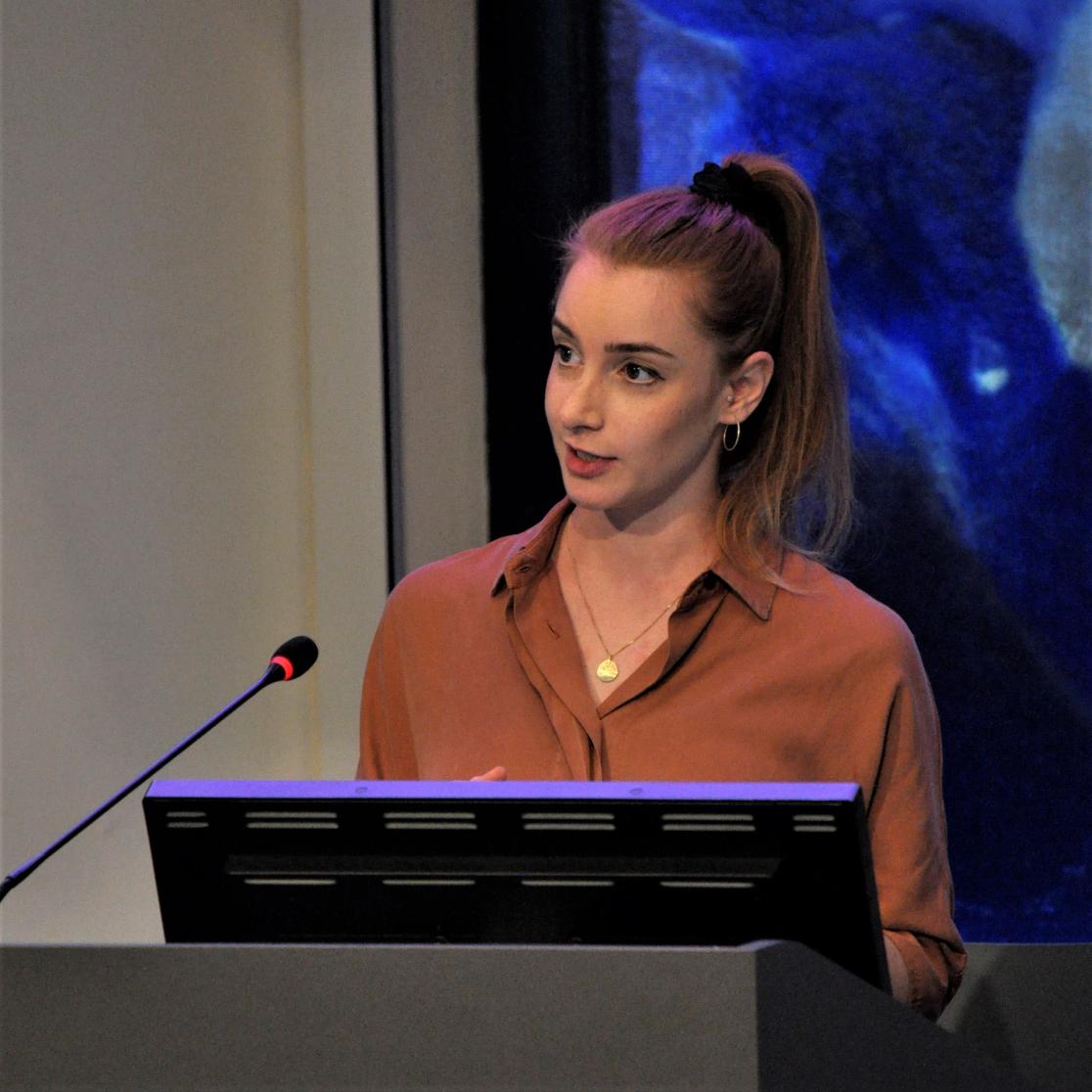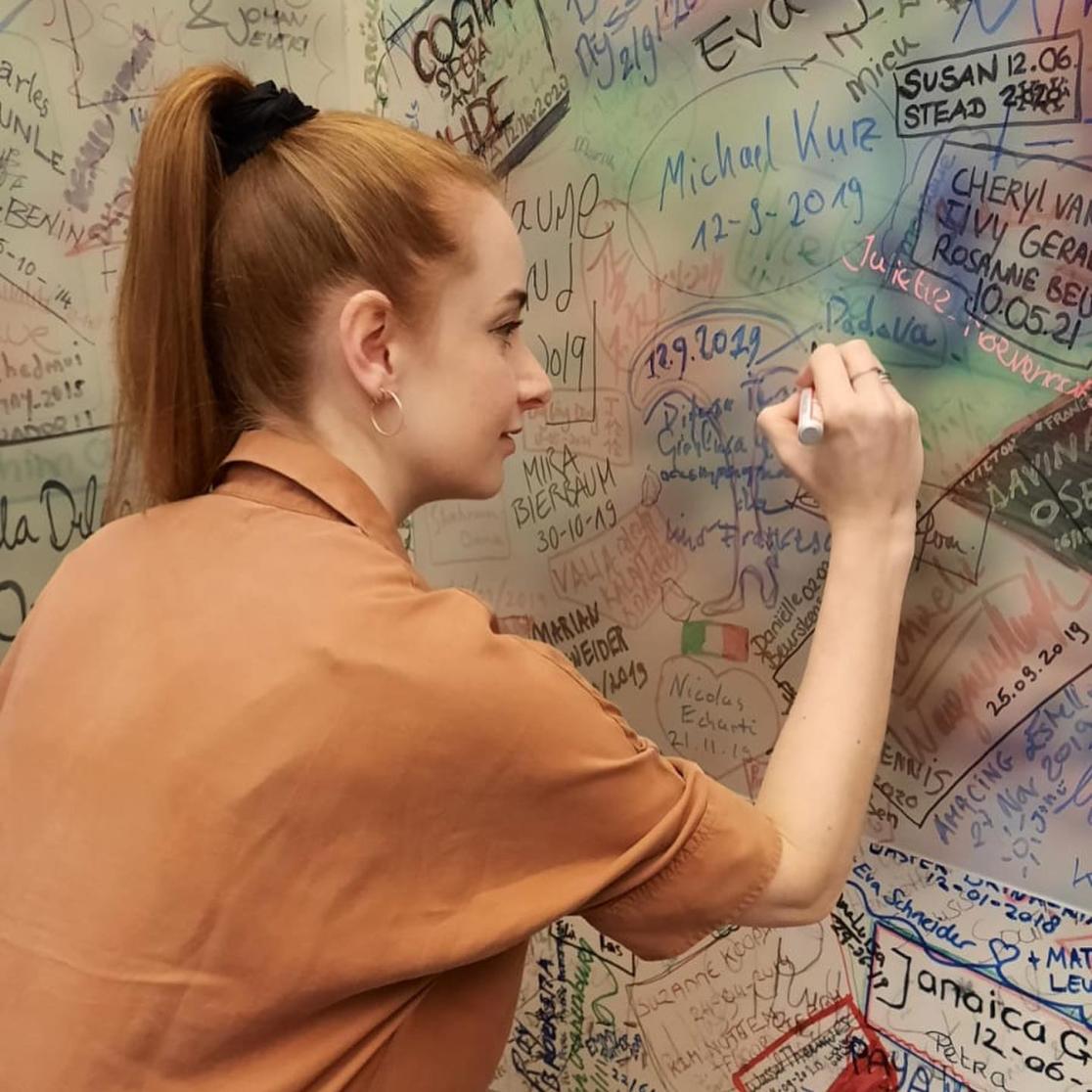Lilian Kloft | PhD Cum Laude
Obtaining your PhD Cum Laude is not something that happens very often. FPN’s Lilian Kloft has managed to do it, while expecting twins. Last month, Lilian defended her PhD thesis at the Minderbroedersberg and was granted the Cum Laude distinction.
We talked to Lilian over Zoom, she’s at home on pregnancy leave, awaiting the arrival of her two boys. “It’s an exciting time, especially finishing the PhD. There were a lot of ups and downs in my pregnancy, so I had to move my defence once. I’m glad it all worked out and the twins are still in there”.
Forensic Psychology
Lilian started her career in psychology in Groningen, where she did her bachelor’s. She then moved to Maastricht do the Master in Forensic Psychology. During that master’s programme she met Prof. Henry Otgaar and Prof. Jan Ramaekers who became her supervisors during her PhD. “I wrote a paper on cannabis and CBD, and Jan and I started talking about how we could expand this into a PhD position”. Kloft applied for an NWO Research Talent grant and got it. That started her PhD project about the effects of drugs on false memories.
“I’m glad I got to do my PhD here in Maastricht. Anywhere else in the world it’s difficult to do studies where participants actually take drugs. And at FPN we have the Forensic Psychology and Psychopharmacology labs that are really unique and amazing. When I tell researchers from other countries that we gave participants MDMA, they all look at me in disbelief”.
Drugs and false memories
Are people more prone to false memories when they have taken drugs? That is the main question that Kloft was trying to answer with her studies. “Are they more likely to give false statements when questioned by the police, either as witness or suspect?”. Kloft looked specifically at cannabis and XTC.
Outside of the FPN labs, she also went to a music festival to do her experiments there. “At festivals, people tend to combine drugs, and this was a great real-world way of testing those effects on false memories”. The experiments consisted of participants wearing a Virtual Reality (VR) headset that allowed them to walk around in a digitally created bar where a crime happened. “Then we asked them questions about the crime, some very suggestive, others were neutral”. An example of a suggestive question is what colour was the backpack that was laying on the bar, green or blue? If people answered either green or blue, they would score high on suggestibility, as there was no backpack on the bar.

Cannabis and MDMA
“Cannabis had the most interesting results. We discovered that, both in lab and field tests, people who were high on cannabis consistently displayed higher rates of false memories”. They answered green or blue, or said yes to the question were there Christmas decorations? (that weren’t there). “They had a yes-bias especially to random questions, they kind of just went along with everything”.
“In the lab we also tested MDMA, but there we didn’t find a consistent increase in false memories. Although we did see that people tended to have memory loss”. However, these results were only found in word list tasks, not so much in the VR setup.

Cum Laude
In the lead up to the PhD defence, Lilian was unaware of the Cum Laude distinction she was about to receive. “It was a real surprise, when my supervisor handed me the certificate he said: it’s Cum Laude. In the livestream you can clearly see the disbelief on my face”. Only around 5% of PhD candidates in the Netherlands achieve this distinction. For Kloft this means that she has receive a triple Cum Laude, in her bachelor, master and PhD!
Postdoc
Kloft is already preparing the next step in her career. “I’m now in my postdoc, doing a new cannabis study. Well, not right now, because of my pregnancy leave my study had to be taken over by a colleague. So, first I’m going to have my twins and take my maternity leave, and then I look forward to continuing the study when I get back”.
Also read
-
Dongning Ren awarded ERC grant for her research proposal on ostracism.
FPN colleague Dr. Dongning Ren was awarded a highly competitive ERC grant for her project: Using a principled causal approach for causal queries: the Ostracism Causal Project.

-

-
Most prestigious European grant to two UM scientists
Two Maastricht University professors are to receive the most prestigious European research grant for individual researchers: an ERC Advanced Grant, worth over €2.5 million. They are Lorenzo Moroni (MERLN) and Alexander Sack (FPN).
